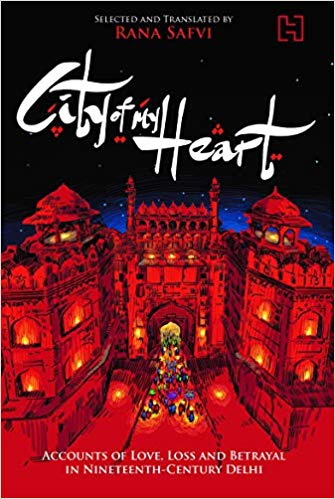The Mughal years are a fascinating period in our history. It is a period that is sought to be whitewashed by the current dispensation. Roads named after Mughal emperors are already in the process of getting appropriated and renamed and history glorifying the non-Mughal leaders is being rewritten. In such a time, Rana Safvi’s City of My Heart takes us back to the Delhi of the Mughal Empire, not in its heyday, but during its last vestiges. The book is an account of how various festivals and occasions were commemorated in Old Delhi through a translation of four Urdu accounts of how life was in the last days of Mughal rule in Delhi. It is indeed an account of loves, losses and betrayals as indicated by the title.
Dilli ka Aakhiri Deedar (The Last Glimpse of Delhi) by Syed Wazir Hasan Dehlvi; Bazm-e-Aakhir (The Last Assembly) by Munshi Faizuddin; Qila-e-Mu’alla ki Jhalkiya’n (Glimpses of the Exalted Fort) by Arsh Taimuri and Begamat ke Aansu (Tears of the Begums) by Khwaja Hasan Nizami are the four evocative accounts that use English almost in the old andaz. The words flow like the shayari of the poets, and the Delhi of the time comes alive for the 21st century audience, especially those unfamiliar with this life and culture. All these writers were eyewitnesses to this period. Their accounts therefore are those of the insider, witnessing the death of an era and recording it for posterity. It is a world of transition, from relaxed decadence to one in which the succeeding generation of the last Mughal has to prove his identity in a court ruled by the British. As Zafar Sultan, the descendant of Bahadur Shah Zafar comments: ‘These rich people think that they can trample us under their heels. Sixty years ago, their ancestors were my servants. In fact, I ruled over all of Hindustan’ (p. 225).
And a little later: ‘The blood that runs inside me has now become used to being abused, oppressed and beaten up, but it was not always so. Where the judge sits today, I have ordered the punishment of several rebels and criminals. My heart and my mind haven’t forgotten those days, even though my eyes have not seen them for an eternity’ (p. 225).

